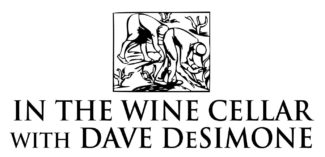In today’s social media cauldron, nothing generates heated diatribes more than “natural wines.”
Pontificating pundits routinely unleash clickbait fodder with full-throated opinions either for or against the wines. This does little, however, to enlighten casual wine drinkers just hoping to understand “natural wines.” But rest assured plenty tasty bottles are available at a decent prices.
The current “natural wine” revolution percolated in the late 1970s in France’s Beaujolais region. In “Natural Wine For the People: What It Is, Where to Find It, How to Love It” (Ten Speed Press; $18.99), Alice Feiring gives a concise overview.
Pioneering winegrowers abandoned synthetic chemical treatments in their vineyards. They instead turned to organic and biodynamic methods to enliven and revitalize the soils. At the same time in the wineries, the credo became, “nothing added, nothing taken away.”
Growers such as the late Marcel Lapierre fermented grapes with native yeasts. They also stopped adding commercial “gimmick” products to enhance color, aromas and flavors. Final bottling occurred without mechanical refinements. They added little or or no sulfites as preservatives. The resulting wines, at their best, offered intriguing earthy aromas, pure fruit flavors and vibrant freshness, just the sort of well-balanced style.
Pick up Feiring’s “Natural Wine For The People” for your reading pleasure while drinking the following “naturally” produced, tasty bottles:
ALSACE PINOT GRIS

• Thanks to the Vosges Mountains’ sheltering peaks, France’s Alsace region enjoys a dry and sunny climate perfect for organic and biodynamic viticulture. Grower Jean-Marie Bechtold takes full advantage in producing the delicious 2016 Domaine Bechtold, Pinot Gris “Silberberg,” Alsace, France (Average U.S. price on wine-searcher.com: $26). He uses only natural products to treat the vines and practices plowng between rows to keep soils vibrant in this limestone-rich vineyard. Harvest occurs by hand, and fermentation takes places in stainless steel tanks with ambient yeasts. Bottling occurs with minimal added sulfites. The wine’s golden color delivers beguiling floral and ripe apple aromas. Pure, ripe flavors of peaches and quince with rich concentration balance with zesty acidity. A marvelous dry finish with plenty of pure fruit lingers nicely. A beautifully balanced, honest wine. Highly Recommended.
AUSTRIAN “PÉT-NAT”
• The 2017 Matthias Hager, Grüner Veltliner “Pét-Nat,” Österreich Perlwein, Austria (Average U.S. Price on wine-searcher.com: $20) comes from grapes grown biodynamically in Kamptal, Austria near the Danube River. Winegrower Hager harvests by hand, ferments with ambient yeasts, and neither fines nor filters the wine before bottling. Before fermentation finishes, he bottles the wine to capture a little CO2. This creates light, tantalizing sparkle for added freshness. And it requires an old-fashioned crown cap enclosure just like those found on bottled beer and ciders.
The wine’s light golden color offers ripe apple, white pepper and light yeasty aromas. In the glass, ripe peach and apple flavors mix with zesty acidity, frothy bubbles and a touch citrus creaminess carrying through the dry finish. Only 11.5% alcohol by volume. Highly Recommended.
TUSCAN RED
• The 2018 Agricola Ampeleia, “Unlitro” Toscana Rosso, Italy ($22.00 for a full liter) offers a delightful red wine from Tuscany, a region not widely known for naturally made wines. But in this case, a collaboration led partly by leading “natural wine” proponent, Elisabetta Foradori, produces the wines. The fruit comes from vineyards in Tuscany’s Maremma region, an area of varying altitudes located near the Mediterranean Sea.
To capitalize, biodynamic farming provides marvelous fruity purity in this wine’s creative blend of Alicante Nero (a.k.a. Grenache), Carignano, Mourvèdre, Sangiovese, and Alicante Bouschet grapes. Fermentation and aging of the wine in cement tanks allows the fruit to shine. The attractive ruby color offers raspberry, black pepper and earthy aromas. Juicy red fruit with light savory notes balance with fine acidity and smooth tannins. Chill this easy drinking, delicious red and enjoy. Highly Recommended.
BEAUJOLAIS-VILLAGES
• The 2018 Vignobles Bulliat, Beaujolais-Villages, France (Average U.S. price on wine-searcher.com: $15) offers a delicious gamay based wine made naturally. Grower Noël Bulliat and his son Loïc switched their sizeable family estate to organic practices in 2010 with official certification in 2013. Consequently, grass grows between the vines to limit yields and eliminate herbicides treatments. Harvest occurs manually. The fruit comes from vines growing primarily in granite soils which lend refreshing mineral notes.
In the glass, a gorgeous ruby color pleases the eye and unfolds fruity black cherry and light earthy notes. Delicious, lip-smacking red fruit flavors balance with zesty acidity and elegant tannins. The wine has only 12.5% alcohol by volume for easy drinking. Highly Recommended.
CÔTES-DU-RHÔNE RED

The “Little Bear”wine — or “Petit Ours” in French — returns! The juicy and delicious 2017 Matthieu Barret “Petit Ours” Côtes-du-Rhône, France (Average U.S. price on wine-searcher.com: $24) comes from the irrepressible and immensely talented organic grower, Matthieu Barret. Located in Cornas in the northern Rhône Valley, Barret purchases the Syrah grapes for this wine from a like-minded, dedicated winegrower in Visan, a commune farther down the Rhône River. The vines grow in clay and limestone with organic and biodynamic methods in Visan’s relatively cool climate. As a result, the grapes develop complex fruitiness while retaining vital freshness.
Fermentation occurs with native yeasts in neutral concrete vats. Aging occurs without new wood. Bottling occurs with minimal added sulfites.
Consequently, Barret’s “Little Bear” delivers a dark-purple color with spicy red and black-fruit aromas with peppery nuances. Fresh, juicy red-fruit flavors balance with zesty acidity and marvelous, refreshing mineral notes. If possible, decant the wine for a couple of hours before drinking it. Highly Recommended.
Do you have go-to favorite “natural wines” that you enjoy? Please share your tips in the comments below and cheers!

